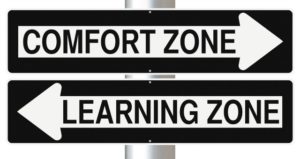
Building Rapport: Moving Beyond Teacher Characteristics to Actions that Promote Learning
When it comes to connecting with students, good relationships and good rapport go hand in hand. The desired rapport develops when faculty are friendly, approachable, respectful, and caring toward students. And how do students respond to professors who’ve established good rapport? They “like” those professors, and that’s the point at which some of us experience a bit of nervous twitching. If students like us, does that mean they learn more? Does education hinge on the popularity of the professor? The ethical ground feels stronger if what students learn and take from their educational experiences results from actions that support learning. And that circles us right back to rapport and the powerful role it plays in determining how students respond to the content in our courses, their daily attendance, and the study time they devote to what we’re teaching. Student commitment to a course increases if rapport with the instructor is good. So, be nice, chat with students, and show that you love teaching.












